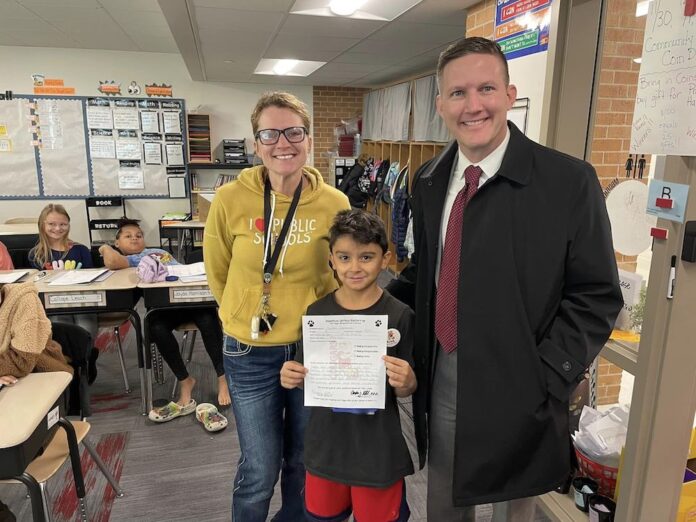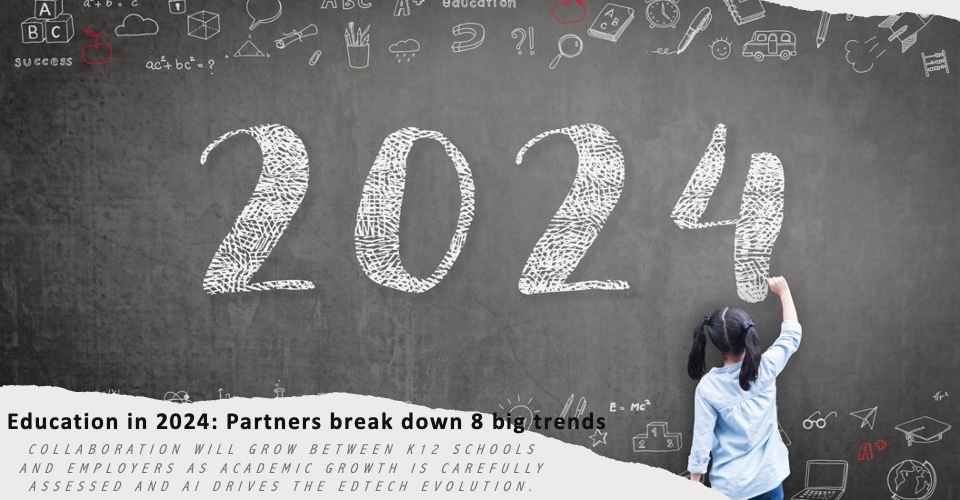How the public went so quickly from calling educators the heroes of the pandemic to “villains” and “groomers” bothers Papillion La Vista Community Schools Superintendent Andrew Rikli.
Scrutinizing public schools—and the tax revenues they spend—is a healthy component of any community. But it’s clear that K12 has landed in a far more politically fraught environment than existed just a few years ago, says Rikli, who earlier this summer became the first Papillion La Vista leader to be named Nebraska’s superintendent of the year.
“We went from, during the pandemic, where teachers were heroes—these were people who were serving kids, who were out in front of our schools handing out meals, they were donating clothes to vulnerable families, they were doing whatever needed to be done to support our community,” he says. “You go from that to an environment where, now, in some circles, teachers and educators are being vilified—we are indoctrinators, we are groomers, we are brainwashers.”
The swing from one extreme to the other is exacerbating staff recruitment and retention problems, “which are very real,” he explains. “When our staff constantly hear a narrative in the national and local media that teachers are villains, that they’re lazy, that they’re somehow in this business to hurt kids, that’s an issue we have to address if we’re going to continue to push forward and support families.”
Papillion La Vista’s road to recovery
But politics aren’t dampening Rikli’s excitement for the new school year. His suburban Omaha district serves about 12,000 students, with a large military presence, and the community is now finding its footing and a renewed sense of normalcy after the pandemic.
“There’s just something magical about bringing our staff back and bringing our students back and getting kids and fam back into a routine,” says Rikli, who has been the district’s superintendent for 11 years. “We’re also excited about having a second continuous year being out of the pandemic. It’s starting to feel like things are starting to stabilize.”
He and his team of educators remain as focused as ever on helping students recover academically and social-emotionally from COVID’s disruptions even though Nebraska’s schools remained open for much of the pandemic. Teachers have embedded social-emotional learning into everyday instructional time, particularly in Papillion La Vista’s middle and elementary schools.
“Teachers can teach many lessons—not for purposes of indoctrinating but for purposes of teaching life skills, like hope, like empathy, like collaboration, like how to be a good human being,” he points out. “We have vulnerable kids, we have fragile families where they’re living hand to mouth and they’re just doing their best to survive. So we do have to step in and do things that in some circles might be considered outside the purview of public education.”
Papillion La Vista staffs five social workers and provides space in its building for outside mental health practitioners to offer convenient, on-site treatment to students and families. “We’re out of the pandemic, there’s still a lot of challenges,” he explains. “If there is a student who has depression, who has anxiety, who has some unmet mental health need, we want to make access to professionals as easy as possible.”
Getting past the politics
When asked about his leadership style, Rikli immediately responds that he feels blessed to work with an outstanding leadership team. Rikli would want Papillion La Vista’s assistant superintendents, directors and principals to say he leads by example and that he doesn’t ask his staff to do things he’s not willing to do himself.
More from DA: How one state is taking on the ‘forced outing’ of transgender students
“I would hope they would say Andy is the kind of leader who surrounds himself with really good people, people who bring skills and talents and experiences that compliment him—in some cases skills and talents and experiences that I just don’t have,” he continues “As leaders, we can’t be afraid to hire people who are more talented than we are and get out of their way and let them do their jobs.”
Transparency is one way he hopes to overcome the political divisiveness that is roiling districts in Nebraska and across the country. For instance, he recommends that leaders invite critics to serve on strategic planning committees. “There are individuals who are waiting for public education to stub their toes, they’re waiting for a misstep,” he contends. “If we don’t understand where some of the frustration is coming from, we’re missing an opportunity to learn.”
The most effective solution is for educators to be outstanding—not good, but outstanding at teaching and learning. “If we’re really really really good at meeting student needs and supporting families and showing our communities that we are partners, that we are there with them, that we are on the same team … if we’re all moving in the same direction with the same end results—that is stronger kids, stronger families, stronger communities—that’s really hard to disagree with,” he asserts.
But with teachers and leaders stuck in the crosshairs, it’s still important for K12 to confront individuals who do not value public education. “I hope the pendulum swings back to the middle, and I’m confident we can get there,” he concludes. “I think the vast majority of parents, taxpayers and empty nesters understand the value of public education.”










